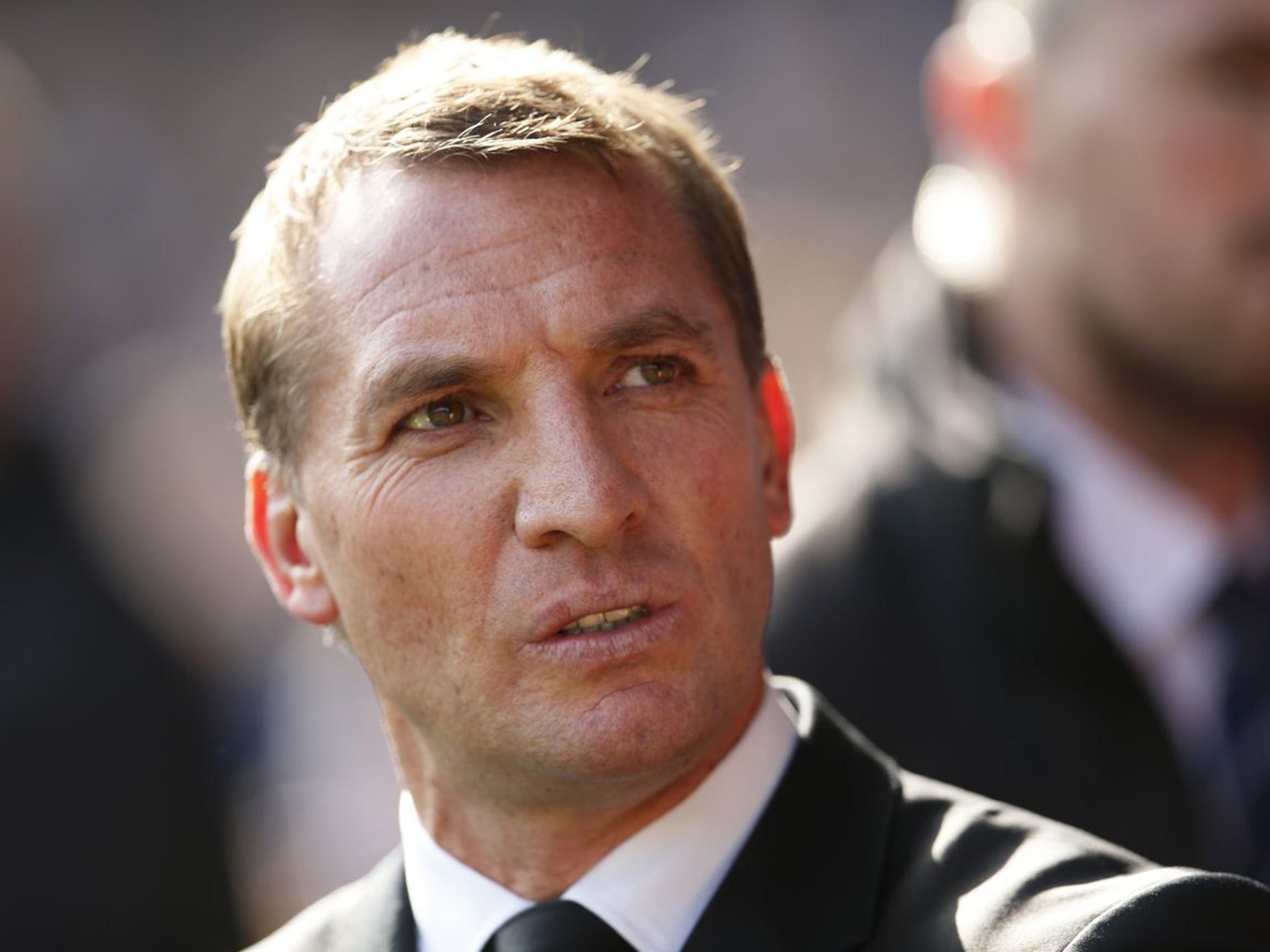Liverpool manager latest: He was no Bill Shankly but Brendan Rodgers was one slip from glory
Liverpool are hanging on to the high-rollers by their fingertips, and the owners must know this

It was ever thus, a manager is sacked by a club believing there is someone out there who might do better. This week’s silver bullet in the Anfield gun is Jürgen Klopp. Yes, he has a fine pedigree but if you like your European engagements on Thursdays you will note the presence of Borussia Dortmund. It was Klopp who took them there, and he was lucky to get that consolation after flirting with relegation last season before recovering to seventh.

Even the great Jose Mourinho is operating under the veil of the “vote of confidence”. He won’t want to fail again when Chelsea resume the Premier League after the international break at home to Aston Villa.
We can argue the toss about the merits of Brendan Rodgers as a coach. Had Steven Gerrard stayed upright against Chelsea two seasons ago and Liverpool not had that mad finish at Selhurst Park, where they blew a three-goal lead in the final 10 minutes, Rodgers would have been up there with Bill Shankly as an unlikely Messiah, and presumably unsackable 18 months hence.
Alongside Manchester City’s second-half romp against Newcastle and Arsenal’s first half on Sunday, the finest 45 minutes of football played in the Premier League this season was arguably the work of Liverpool at the very ground where Manchester United were overrun. Arsenal were dizzy trying to keep up.
At the heart of the piece that day stood Philippe Coutinho, a player going nowhere at Internazionale yet transformed under the aegis of Rodgers into an attacking midfielder worthy of mention in the same breath as the great David Silva.
And lest we forget, Rodgers was having to cope with the loss of Raheem Sterling, a player he developed into England’s most expensive footballer, plus the injured Daniel Sturridge, a £12m snip from Chelsea whom he transformed into England’s first-choice centre forward.
Liverpool are hanging on to the English high-rollers by their fingertips
The counter argument has been made with force, listing all the duds bought during Rodgers’ reign with the fourth biggest spend. There have been plenty, but no more or less than any other outfit seeking that all-too quick fix to keep them in a game structurally moving beyond them.
The truth is Rodgers, like his predecessors, was always sifting through the bargain rail of football’s designer outlets, looking for promise, or a player somehow missed by those who can afford to shop by private appointment.
Luis Suarez remains the best example of that, a £22.8m steal from Ajax in January 2011. Contrast that without splitting your sides with the £35m Kenny Dalglish splashed in the same transfer window on Andy Carroll, who remains Liverpool’s record signing. It might have been a catastrophic punt then, but would barely buy you a middling operator now, a Christian Benteke, perhaps, or a Roberto Firmino.
So Rodgers was dealing with a different reality to the one that exists in the imaginations of most Liverpool fans, who equate 18 league titles and five European Cups with a degree of entitlement to which the club no longer has a claim.
Though Forbes places Liverpool eighth in the list of the world’s richest clubs, they are only fifth in England and some distance from the pulling power of Manchester City, Chelsea, Manchester United and Arsenal. In terms of value, United are in a league of their own in England and trade top billing with Real Madrid and Barcelona, each worth more than €3bn – that’s more than three times the estimated value of Liverpool.
In that sense Rodgers over-achieved in 2013-14, when he came within two points of taking Liverpool to a 19th league championship, the best since Rafa Benitez peaked in 2008-09, finishing second to United. That was another example of a coach squeezing every last drop from the cycle.
In the minds of the Anfield faithful, wired to see the graph continue its upward curve, both near-misses were seen as steps towards the ultimate conquest rather than glorious failures of teams delivering more than the sum of their parts.
As rich as Liverpool’s history is, as deep as the Kop is embedded in football lore, the club is facing structural barriers that simply did not exist when Shankly and Bob Paisley made best use of football’s pre-commercial rights economy.
In the Seventies and Eighties, Liverpool traded on equal terms with the Manchester clubs, Arsenal and Spurs, an institution at the heart of a great city with a powerful industrial past that guaranteed a loyal following and comparatively huge gates.
According to Forbes, Liverpool’s value is €982m (£725m), Arsenal’s €1.3bn, Chelsea’s €1.36bn, City’s €1.37bn and United’s a towering €3.1bn.
Liverpool are hanging on to the English high-rollers by their fingertips. Perhaps it is time for the supporters and the ownership to recognise that with tempered expectations. Rodgers might not have been a Shankly, but even the miner’s boy from Glenbuck would struggle to re-ignite the Kop in this climate.
Join our commenting forum
Join thought-provoking conversations, follow other Independent readers and see their replies
Comments
Bookmark popover
Removed from bookmarks